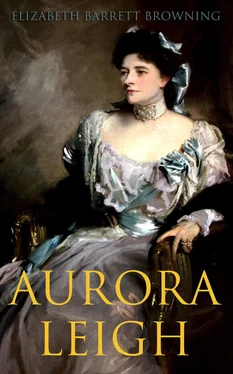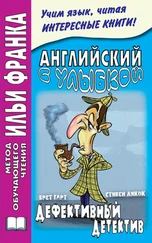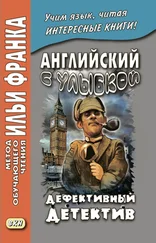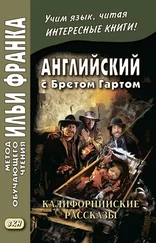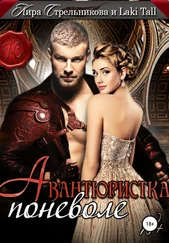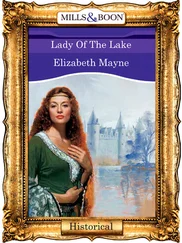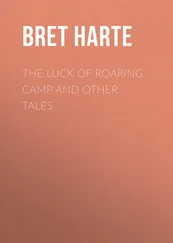I had a father! yes, but long ago— How long it seemed that moment. Oh, how far, How far and safe, God, dost thou keep thy saints When once gone from us! We may call against The lighted windows of thy fair June-heaven Where all the souls are happy—and not one, Not even my father, look from work or play To ask, ‘Who is it that cries after us, Below there, in the dusk?’ Yet formerly He turned his face upon me quick enough, If I said ‘father.’ Now I might cry loud; The little lark reached higher with his song Than I with crying. Oh, alone, alone— Not troubling any in heaven, nor any on earth, I stood there in the garden, and looked up The deaf blue sky that brings the roses out On such June mornings. You who keep account Of crisis and transition in this life, Set down the first time Nature says plain ‘no’ To some ‘yes’ in you, and walks over you In gorgeous sweeps of scorn. We all begin By singing with the birds, and running fast With June-days, hand in hand: but once, for all, The birds must sing against us, and the sun Strike down upon us like a friend’s sword caught By an enemy to slay us, while we read The dear name on the blade which bites at us!— That’s bitter and convincing: after that, We seldom doubt that something in the large Smooth order of creation, though no more Than haply a man’s footstep, has gone wrong.
Some tears fell down my cheeks, and then I smiled, As those smile who have no face in the world To smile back to them. I had lost a friend In Romney Leigh; the thing was sure—a friend, Who had looked at me most gently now and then, And spoken of my favourite books … ‘our books’ … With such a voice! Well, voice and look were now More utterly shut out from me, I felt, Than even my father’s. Romney now was turned To a benefactor, to a generous man, Who had tied himself to marry … me, instead Of such a woman, with low timorous lids He lifted with a sudden word one day, And left, perhaps, for my sake.—Ah, self-tied By a contract—male Iphigenia, bound At a fatal Aulis, for the winds to change, (But loose him—they’ll not change); he well might seem A little cold and dominant in love! He had a right to be dogmatical, This poor, good Romney. Love, to him, was made A simple law-clause. If I married him, I would not dare to call my soul my own, Which so he had bought and paid for: every thought And every heart-beat down there in the bill— Not one found honestly deductible From any use that pleased him! He might cut My body into coins to give away Among his other paupers; change my sons, While I stood dumb as Griseld, for black babes Or piteous foundlings; might unquestioned set My right hand teaching in the Ragged Schools, My left hand washing in the Public Baths, What time my angel of the Ideal stretched Both his to me in vain! I could not claim The poor right of a mouse in a trap, to squeal, And take so much as pity, from myself.
Farewell, good Romney! if I loved you even, I could but ill afford to let you be So generous to me. Farewell, friend, since friend Betwixt us two, forsooth, must be a word So heavily overladen. And, since help Must come to me from those who love me not, Farewell, all helpers—I must help myself, And am alone from henceforth.—Then I stooped, And lifted the soiled garland from the ground, And set it on my head as bitterly As when the Spanish king did crown the bones Of his dead love. So be it. I preserve That crown still—in the drawer there! ’twas the first; The rest are like it;—those Olympian crowns, We run for, till we lose sight of the sun In the dust of the racing chariots! After that, Before the evening fell, I had a note Which ran—‘Aurora, sweet Chaldean, you read My meaning backward like your eastern books, While I am from the west, dear. Read me now A little plainer. Did you hate me quite But yesterday? I loved you for my part; I love you. If I spoke untenderly This morning, my beloved, pardon it; And comprehend me that I loved you so, I set you on the level of my soul, And overwashed you with the bitter brine Of some habitual thoughts. Henceforth, my flower, Be planted out of reach of any such, And lean the side you please, with all your leaves! Write woman’s verses and dream woman’s dreams; But let me feel your perfume in my home, To make my sabbath after working-days; Bloom out your youth beside me—be my wife.’
I wrote in answer—‘We, Chaldeans, discern Still farther than we read. I know your heart, And shut it like the holy book it is, Reserved for mild-eyed saints to pore upon Betwixt their prayers at vespers. Well, you’re right, I did not surely hate you yesterday; And yet I do not love you enough to-day To wed you, cousin Romney. Take this word, And let it stop you as a generous man From speaking farther. You may tease, indeed, And blow about my feelings, or my leaves— And here’s my aunt will help you with east winds, And break a stalk, perhaps, tormenting me; But certain flowers grow near as deep as trees, And, cousin, you’ll not move my root, not you, With all your confluent storms. Then let me grow Within my wayside hedge, and pass your way! This flower has never as much to say to you As the antique tomb which said to travellers, ‘Pause,’ ‘Siste, viator.’ Ending thus, I signed.
The next week passed in silence, so the next, And several after: Romney did not come, Nor my aunt chide me. I lived on and on, As if my heart were kept beneath a glass, And everybody stood, all eyes and ears, To see and hear it tick. I could not sit, Nor walk, nor take a book, nor lay it down, Not sew on steadily, nor drop a stitch And a sigh with it, but I felt her looks Still cleaving to me, like the sucking asp To Cleopatra’s breast, persistently Through the intermittent pantings. Being observed, When observation is not sympathy, Is just being tortured. If she said a word, A ‘thank you,’ or an ‘if it please you, dear,’ She meant a commination, or, at best, An exorcism against the devildom Which plainly held me. So with all the house. Susannah could not stand and twist my hair, Without such glancing at the looking-glass To see my face there, that she missed the plait: And John—I never sent my plate for soup, Or did not send it, but the foolish John Resolved the problem, ’twixt his napkined thumbs, Of what was signified by taking soup Or choosing mackerel. Neighbours, who dropped in On morning visits, feeling a joint wrong, Smiled admonition, sate uneasily, And talked with measured, emphasised reserve, Of parish news, like doctors to the sick, When not called in—as if, with leave to speak, They might say something. Nay, the very dog Would watch me from his sun-patch on the floor, In alternation with the large black fly Not yet in reach of snapping. So I lived.
A Roman died so; smeared with honey, teased By insects, stared to torture by the noon: And many patient souls ’neath English roofs Have died like Romans. I, in looking back, Wish only, now, I had borne the plague of all With meeker spirits than were rife in Rome.
For, on the sixth week, the dead sea broke up, Dashed suddenly through beneath the heel of Him Who stands upon the sea and earth, and swears Time shall be nevermore. The clock struck nine That morning, too—no lark was out of tune; The hidden farms among the hills, breathed straight Their smoke toward heaven; the lime-tree scarcely stirred Beneath the blue weight of the cloudless sky, Though still the July air came floating through The woodbine at my window, in and out, With touches of the out-door country-news For a bending forehead. There I sate, and wished That morning-truce of God would last till eve, Or longer. ‘Sleep,’ I thought, ‘late sleepers—sleep, And spare me yet, the burden of your eyes.’
Then, suddenly, a single ghastly shriek Tore upwards from the bottom of the house. Like one who wakens in a grave and shrieks, The still house seemed to shriek itself alive, And shudder through its passages and stairs With slam of doors and clash of bells.—I sprang, I stood up in the middle of the room, And there confronted at my chamber-door, A white face—shivering, ineffectual lips.
Читать дальше
